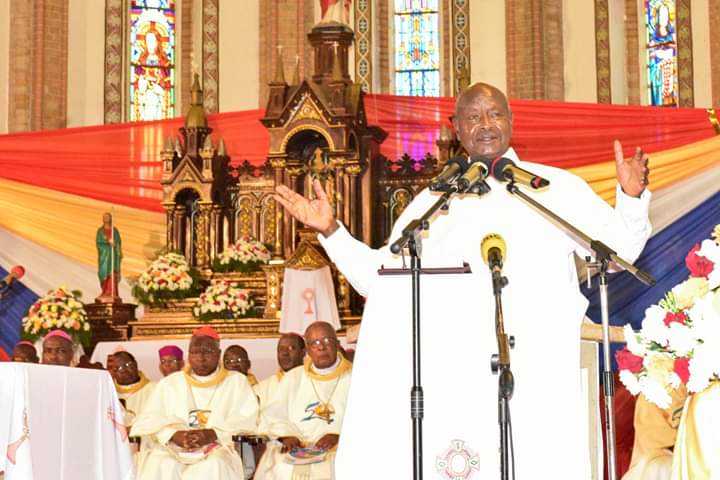Over 20 million doses of Measles-Rubella (MR) vaccine have arrived in Uganda.
The vaccines, procured by UNICEF with financial support from Gavi, will protect more than 18 million children aged 9 months to 14 years against Measles and Rubella during a national vaccination campaign that will take place on 25-29, September 2019.
The last batch of the vaccines was received today (18th July 2019) by Dr. Charles Olaro, Ministry of Health’s Director of Clinical Services at Entebbe International Airport. The doses have been received in five batches.
Measles is highly contagious. The virus can be contracted by someone up to two hours after an infected person has left a room. It spreads through air and infects the respiratory tract, potentially killing malnourished children or babies too young to be vaccinated. Infection with measles is followed by high fever, rash that spreads over the body, cough, running nose and red watery eyes, with the disease weakening the body’s immune system. It also often leads to serious complications that include blindness, encephalitis, severe diarrhea and severe respiratory tract infections, such as pneumonia.
Rubella is an infection caused by a virus and is particularly dangerous for adolescents and pregnant women. When a woman is infected with the rubella virus early in pregnancy, she has a 90% chance of passing the virus to her unborn child. This can cause the death of the fetus or serious birth defects, such as deafness, blindness, and heart defects, known as Congenital Rubella Syndrome (CRS). Children who contract rubella experience rashes and low fever, with the disease sometimes associated with joint pains and a swelling of the lymph nodes.
An increasing number of unvaccinated children in Uganda has led to measles outbreaks in several districts across the country.
62 districts are currently experiencing a Measles outbreak while 25 have been affected by Rubella. Globally, over 400 children die every day due to measles and about 280 babies are born every day with congenital rubella syndrome (CRS).
“Procurement of vaccines and other immunization supplies is one of several approaches UNICEF is taking to support the Government of Uganda to contain the measles and rubella outbreaks across the country,” said Dr. Doreen Mulenga, UNICEF’s Representative in Uganda.
“By vaccinating every child in Uganda on time, we will avert the spread of these dangerous diseases and many preventable child deaths and birth defects.”
UNICEF in partnership with Ministry of Health, WHO, Gavi and The Vaccine Alliance, is undertaking the following to help improve routine immunization coverage, eliminate measles outbreaks and prevent rubella:
• Negotiating vaccine prices globally: the cost of the measles vaccine is now at an all-time low;
• Helping Uganda identify unreached children and improve immunization coverage in undeserved areas;
• Procuring vaccines and other immunization supplies;
• Supporting supplementary vaccination campaigns to address gaps in routine immunization coverage;
• Introducing innovations like the use of solar power to maintain vaccines at the right temperature.
The vaccines cost USD 14,351,000 (over 53 million Uganda shillings).






